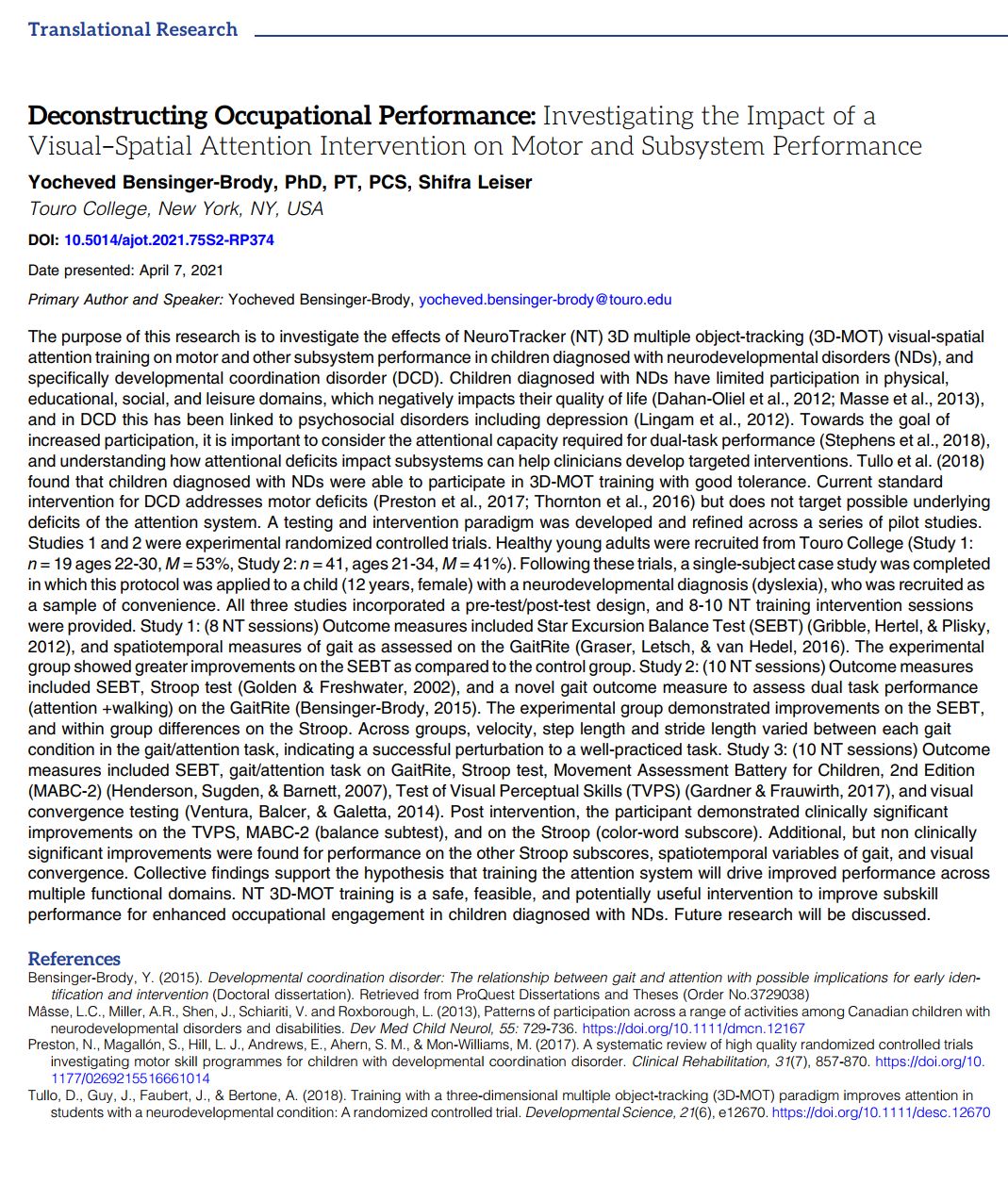Welcome to the Research and Strategy Services at in today's fast-paced.


With over 30 studies published on Human Performance, NeuroTracker research is revealing just how closely the brain and body are connected when it comes to sports. Here we take a look at three key studies which show that athletes’ brains are key to their success on the field.
Team sport athletes tend to get labeled with the ‘dumb jock’ stereotype, but maybe what makes them special is actually more about their brains than their bodies. This study pit elite athletes against university students to see if they had a hidden intelligence edge.
102 elite athletes from top teams in the NHL, EPL and European Rugby, 173 elite amateurs (NCAA), and 33 non-athlete university students all performed 15 NeuroTracker sessions over several weeks. The aim was to find out initial ability on a demanding yet neutral cognitive task, and then measure how quickly participants’ brains adapted to NeuroTracker training.
The sports stars started out with the highest NeuroTracker scores. Surprisingly, they also learned at a much faster rate than the collegiate athletes, who in turn learned faster than the university students.

This study showed that elite athletes have superior cognitive capacities for perceiving complex and dynamic scenes. However, and more importantly, it discovered for the first time that they also have much greater neuroplasticity. Their brains are geared to adapting to the mental demands of NeuroTracker much more rapidly than even university students. Professor Faubert, who conducted the research, believes this ability may a determining factor in what separates the best athletes from the rest:
“The fact that they are there…is because they are more plastic. I think that’s one of the criteria. You would think that this brain is optimal at the highest competitive level, that it’s reached its maximum potential. But maybe they are there because they can acquire new potential so much more rapidly and efficiently.”
Basketball is the sport with the most advanced analyses of competition performance. This study investigated whether there is a relationship between cognitive abilities measured by NeuroTracker and on-court performance stats of NBA players.
12 professional NBA basketball players were tested with a single session of NeuroTracker (6 minutes). The visual tracking speed score of each player was then compared with a range of competition statistics over the course of an NBA season. This included Assists, Turnovers, Assist-to-Turnover ratio, and Steals. Reaction speeds of the players were also measured through a separate assessment.
NeuroTracker scores correlated strongly with Assist-to-Turnover ratio and Turnovers. Backcourt players were found to have the highest NeuroTracker scores and Assist-to-Turnover ratios. Reaction time was not related to any of the performance stats.
NeuroTracker scores turned out to be a good predictor of which players would perform better on the court throughout the NBA season. When it comes to competition, it’s traditionally difficult to predict when professional athletes have good days or bad days. This study shows that cognitive profiling could be a useful tool for making decisions on who makes the team each game, improving the team’s performance consistency.
Study: ‘Visual tracking speed is related to Basketball-specific measures of performance in NBA players’
Instinctively we put sports injuries down to the physical demands of sports. However, many sports tax the brain as much as the body, with research showing a relationship between cognitive functions and increased incidence of injuries. This study looked to see if placing demands on the brain could change motor-skill performance, specifically in ways known to increase the chances of an anterior cruciate ligament (ACL) injury.
College level healthy athletes (soccer, volleyball, football) performed 16 single-leg landing trials involving a jump forward and a lateral jump to the opposing leg. These movements were measured via force plates and motion capture of the legs and pelvis using 36 markers. The NeuroTracker task was assigned randomly to half of the trials (dual-task procedure), with jumps performed during the tracking phase.

Hip and/or knee kinematics changed significantly when performing NeuroTracker at the same time as the jumps. The largest change was found with knee abduction angle, known to be strongly associated with ACL strain. The NeuroTracker task revealed that 60% of the participants had increased ACL injury due to added cognitive load.
ACL injuries are known to be one of the most sports common injuries, which are self-inflicted due to motor-skill problems. This study showed that using NeuroTracker to simulate the mental demands of sports performance could potentially reveal individuals who are susceptible to ACL injury. Though specific to ACL injury, the same principle could apply to any sports injuries related to motor-skills influenced by cognitive loads.
Additionally, the research involved athletes who were not trained on NeuroTracker. A follow-up study will see if NeuroTracker training can reverse these types of injury risk factors. Study author Professor Faubert explains the importance of the research:
“Athletes could potentially use cognitive training to limit their risk of sustaining an injury. An effective cognitive intervention for injury prevention would generally improve health prospects for individuals taking part in sports. At the elite level, where injuries of top players are extremely costly, it would also provide a competitive edge.”
Study: ‘Evaluating the effect of a perceptual-cognitive task on landing biomechanics of the lower limb’
In a follow-up blog, we will cover NeuroTracker studies on the Holy Grail of human performance training - far transfer. Watch this space!








Welcome to the Research and Strategy Services at in today's fast-paced.

An explanation of a structured habit-building framework for cognitive routines, emphasizing consistency, accountability, and long-term sustainability.

From stereo-3D to adaptive speed thresholds, get the lowdown on what makes NeuroTracker tick.

Check out our 101 on how NeuroTracker works under the hood.
.png)